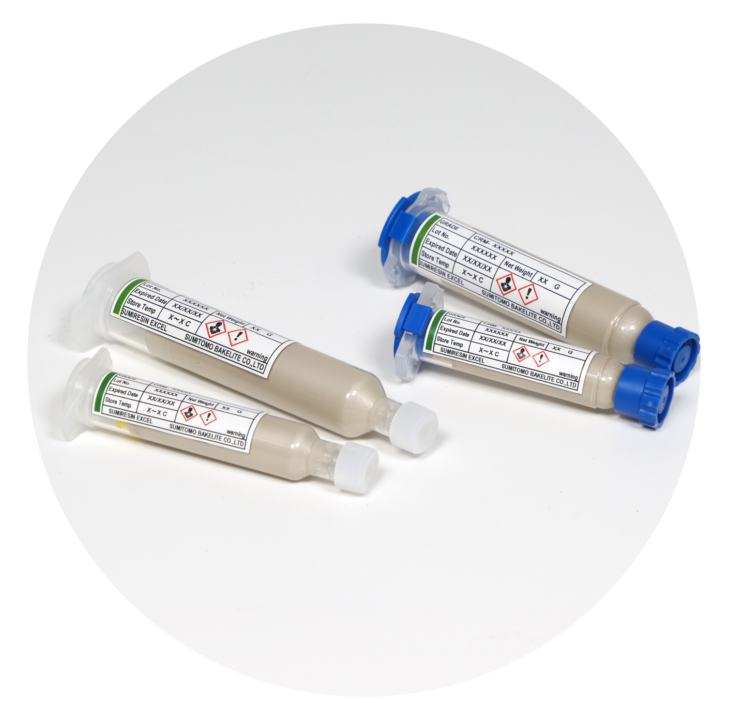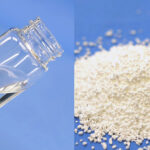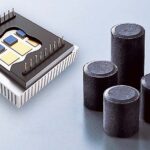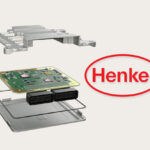ASIA ELECTRONICS INDUSTRYYOUR WINDOW TO SMART MANUFACTURING
Sumitomo Bakelite New Sintering Paste Lifts Power ICs
Sumitomo Bakelite Co., Ltd. has begun shipping samples of 150 W/m・K high thermal conductivity sintering silver (Ag) paste for next-generation power semiconductors. The company targets mass production for the said product within this year.
Primarily, this product can replace lead solder (37% lead content), which has a large impact on the environment. Applying it to silicon carbide (SiC) power semiconductors will enhance their functionality while contributing to miniaturization and component reduction.

Development Background
In recent years, power semiconductors have been used in a wide variety of fields as electronic devices to control high power, such as converters/inverters for electric vehicles (EVs), solar and wind power generation systems, and new energy applications. The market can potentially grow in the future. Against this background, demand for SiC power semiconductors, which have properties superior to Si, has been increasing.
Mainly, SiC power semiconductors are often used at high power and have the characteristic of generating a high amount of heat. However, SiC is a material with high thermal conductivity, so efficiently dispersing heat has been an issue.
For this reason, the die attach material used to bond the substrate and chip must have high heat dissipation properties. Traditionally, lead solder is used in die attach materials. However, the waste and liquid waste generated during the manufacturing process of solder can contain harmful substances such as lead and heavy metals, which increases environmental burden.
Additionally, the thermal conductivity of solder (25 to 60 W/m・K), which is insufficient for the heat dissipation necessary for SiC power semiconductors, is also an issue. To solve this problem, sintering silver paste is attracting attention as a highly thermally conductive material.
Sumitomo Bakelite is working on achieving both high thermal conductivity and high reliability in sintered silver paste. This time, it has successfully developed a high heat dissipation semi-sintered silver paste with a thermal conductivity of 150 W/m・K, and has begun shipping samples.
High Thermal Conductivity Sintering Silver Paste
The new silver paste developed using the company’s resin compounding technology combines silver with a resin that has excellent flexibility and high sintering accelerating properties. Particularly, this resin technology has high heat dissipation of 150 W/m・K and can be used in pressure-free processes. Accordingly, this can reduce damage to bonded parts and shorten processing times through batch processing.
Furthermore, this product has a lower curing temperature than conventional full sintering materials. Additionally, it reduces stress due to differences in linear expansion coefficients between materials during curing. Also, is excellent in workability when joining multiple members of different heights. Mainly, it suits bonding power semiconductor chips and coolers as an alternative to solder and full sintering materials.
In addition, even micro silver, which is cheaper than nano silver, can achieve high sinterability while ensuring high reliability with durability in cold and hot temperature cycles.
Benefits of Using This Product
- It is possible to reduce lead by replacing lead solder (37% lead content) used in power semiconductors, etc.
- As an alternative to fully sintered materials, it is possible to reduce differential linear expansion stress due to low joining temperatures.
- Improved workability for joining multiple members with different heights
- Application to SiC semiconductors enables product miniaturization and component reduction while improving functionality.
Future Plans
With regards to the high thermal conductivity sintering silver paste 150 W/m・K for power semiconductors, Sumitomo Bakelite started offering samples to customers in September 2023, and proceeded with customer evaluation. The company plans to achieve mass production in December 2024.
This is an online translation of a press release in Japanese with slight editing made by Dempa.
-23 July 2024-




